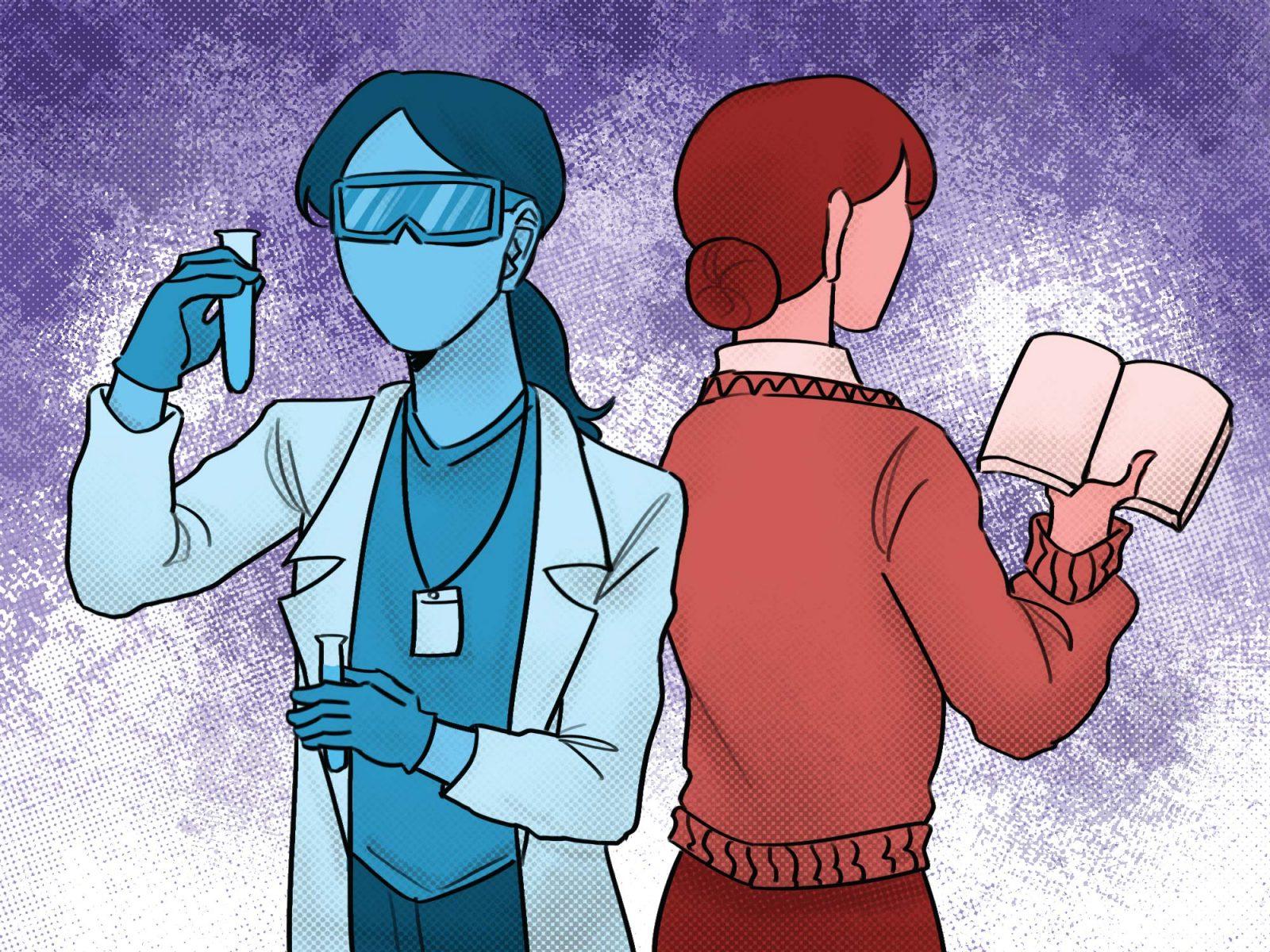Climate change inevitably fosters climate guilt: that nagging paranoia that you should be doing more or the impossible feeling of being burdened with solving a crisis shoved onto us by previous generations. Even worse is the existential hopelessness of knowing there might just not be enough we can do to fix the earth.
I think that’s one of the hardest parts of being involved, in whatever capacity that is, with the climate crisis — you’re set up to feel like the burden is completely on you.

Everywhere you go, there is some sign screaming at you to recycle more, waste less, walk everywhere and generally grovel to the Earth. That’s not necessarily a bad thing: certain collective actions have been hypothesized to help the environment. For instance, if meat eaters in the United Kingdom who consume more than 3.5 ounces of meat a day cut their consumption roughly in half, “it would be the equivalent of taking 8 million cars off the road,” according to the New York Times.
Of course, this hopes enough people will agree to do it, which I think is a hard sell.
As helpful as individual action can be, and as good as it can make us all feel, I don’t believe individual action is truly that effective. Especially at the scale of the global climate crisis, an issue surrounded by bureaucratic red tape and swathed in political divide.
Right now, I think our biggest hurdle in climate change is geopolitics.
Our relationship with China is always a hot topic in global politics, but right now, that relationship has the potential to make or break the green energy sector.
United States Treasury Secretary Janet Yellen is set to make a trip to China in April, and among the topics of discussion is the oversaturation of green tech in the global marketplace.
Oversaturation is a problem for the U.S. The Inflation Reduction Act set aside billions of dollars to alleviate climate change, which allowed the Biden administration to pour those tax credits and subsidies into clean energy sectors. Those investments helped struggling companies like Suniva, the solar company to which Yellen gave a speech on her upcoming China trip.
But, if China oversaturates the market and sells its products for much cheaper, it undercuts all the work Biden has done to build up the clean energy sector in the U.S.
The U.S. has attempted to subsidize certain green tech industries, which China has argued are discriminatory and unfair.
I worry about how this will affect the climate crisis: On the surface, it seems like more green tech for cheap could be a good thing. On the other hand, the last thing we want is for climate change to once again be caught in the middle of political tensions.
President Xi Jinping said, “China and the United States should become boosters for each other’s development, not obstructions on each other.”
While I doubt this will happen soon, I do agree that in an ideal world, we’d all be globally pursuing climate change solutions. There is an alternative where the cheaper green tech and parts made by China can be used by the U.S. instead of attempting to manufacture our own end-to-end since tariffs drive up prices for Americans and manufacturers in the process.
But, that scenario is not likely to play out soon, given that the Biden administration wants to avoid becoming overdependent on China.
While Biden has received flack for his economic policies — known as “Bidenomics” — he has certainly taken up measures to help climate change, and he has definitely been firm with China throughout his presidency, particularly in reducing American semiconductor exports to China.
Hopefully, this isn’t the end of America’s push for climate initiatives in the tech industries. I shudder to think about how a setback in U.S. climate policy could be used as fodder in the upcoming elections.
I especially think it’s important to note that while the climate crisis is inextricably tied up in politics, we must not ignore the power of government action.
Sure, I’m not always happy with how the U.S. handles climate change — I would love to completely stop our dependence on fossil fuels and cut down transportation emissions.
However, that’s not going to happen quickly. To shift our entire economy, while still keeping unemployment low and quality of life relatively high, takes time and effort.
Whenever I think of the slow-moving beast of government action, I tend to think about the Willow project from a few years ago. It was shrouded in controversy — after all, Biden pledged to help the environment more, and then he suddenly approved a huge oil drilling project in Alaska. What gives?
Politics is what gives. The project would harm the environment — but it would also bring economic revitalization to Alaska. Plus, legal experts say that the oil company ConocoPhillips probably could have been able to develop the project even if Biden blocked it, and they would have gained an obscene amount of money in the process by suing.
I find politics incredibly frustrating. It’s annoying to constantly wonder about the strategic undercurrent of every action.
But, I also feel like sometimes the climate movement tries to make climate policy much more simple than it is. There’s a lot of bombastic rhetoric, a lot of “we have to fix this immediately,” but I personally don’t see a lot of followthrough or a lot of realistic solutions to those sorts of statements.
Playing the long game with climate change politics can be rough, but it might also be our only solution. As cliché as it sounds, some climate action is better than none.
That’s why, in addition to all the individual action against climate change, I hope to see everyone casting ballots this November.


























































































































